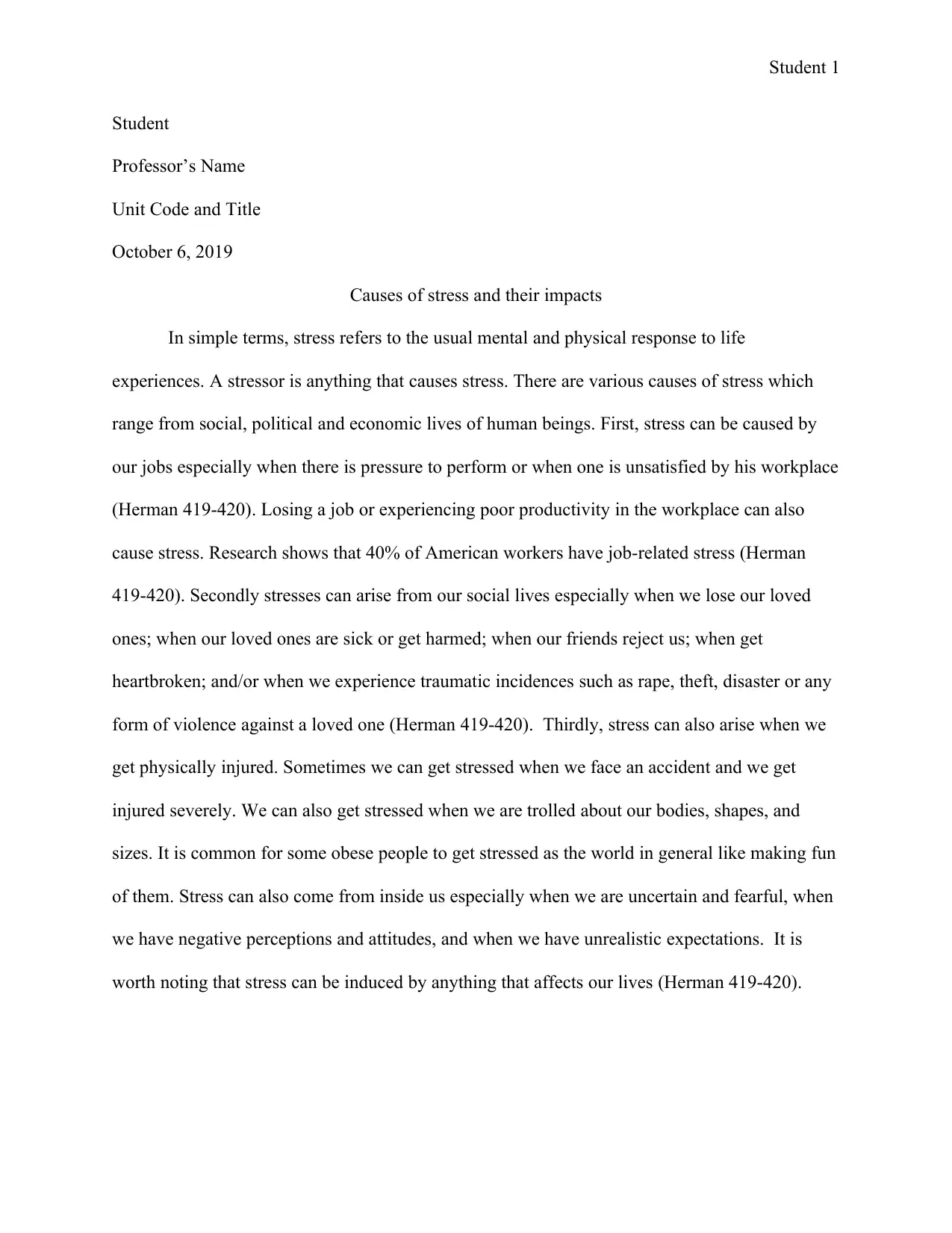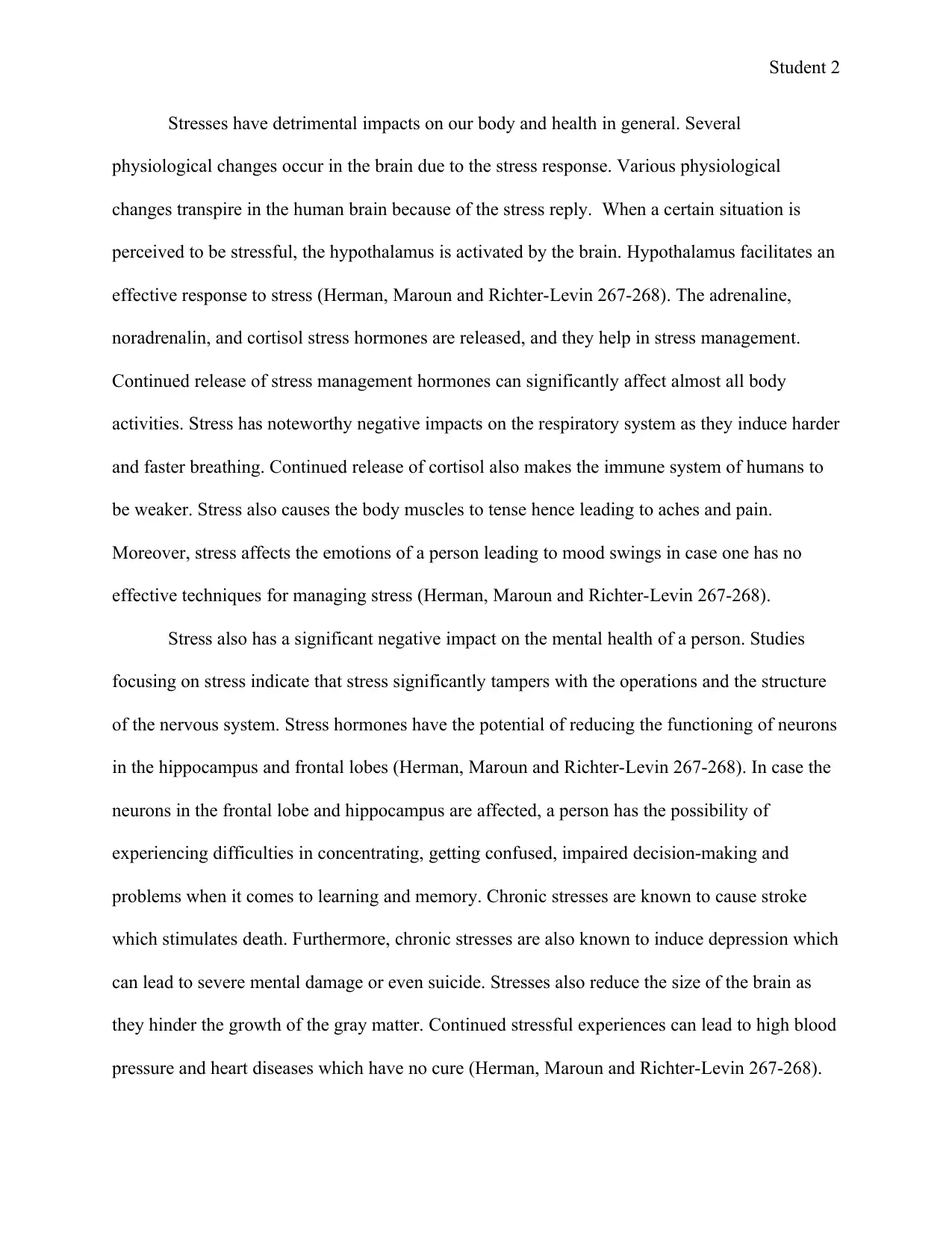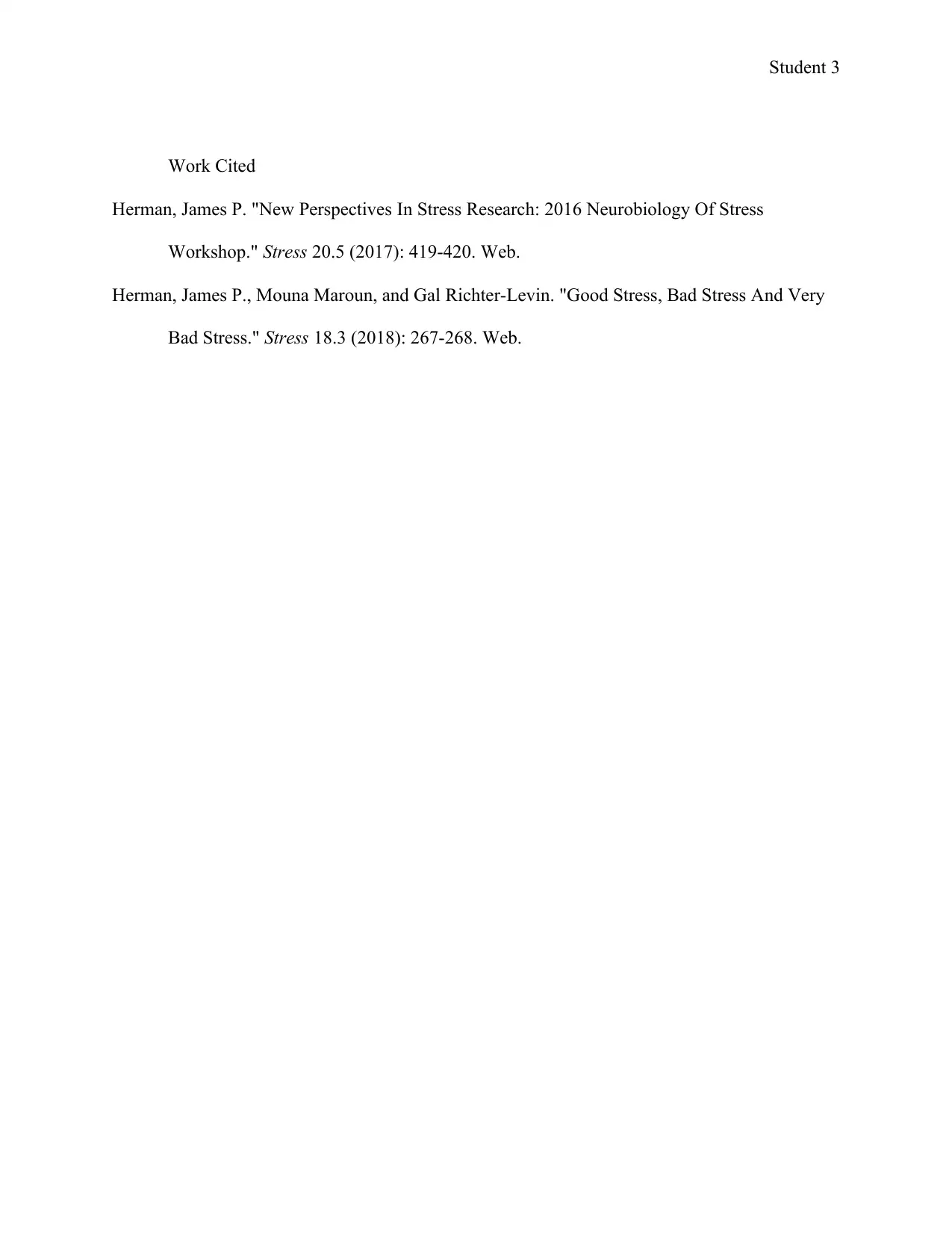Analysis of Stress: Causes, Impacts, and Psychological Implications
VerifiedAdded on 2022/09/27
|3
|729
|23
Essay
AI Summary
This essay examines the multifaceted causes and detrimental impacts of stress on human beings. It delves into various stressors, including job-related pressures, social interactions, and physical injuries, highlighting their effects on mental and physical health. The essay explores the physiological changes induced by stress, such as the release of stress hormones, and their impact on the respiratory and immune systems. Furthermore, it discusses the negative consequences of chronic stress on the nervous system, potentially leading to difficulties in concentration, impaired decision-making, and even stroke and depression. The essay underscores the importance of understanding and managing stress to mitigate its adverse effects on overall well-being.
1 out of 3




![[object Object]](/_next/static/media/star-bottom.7253800d.svg)